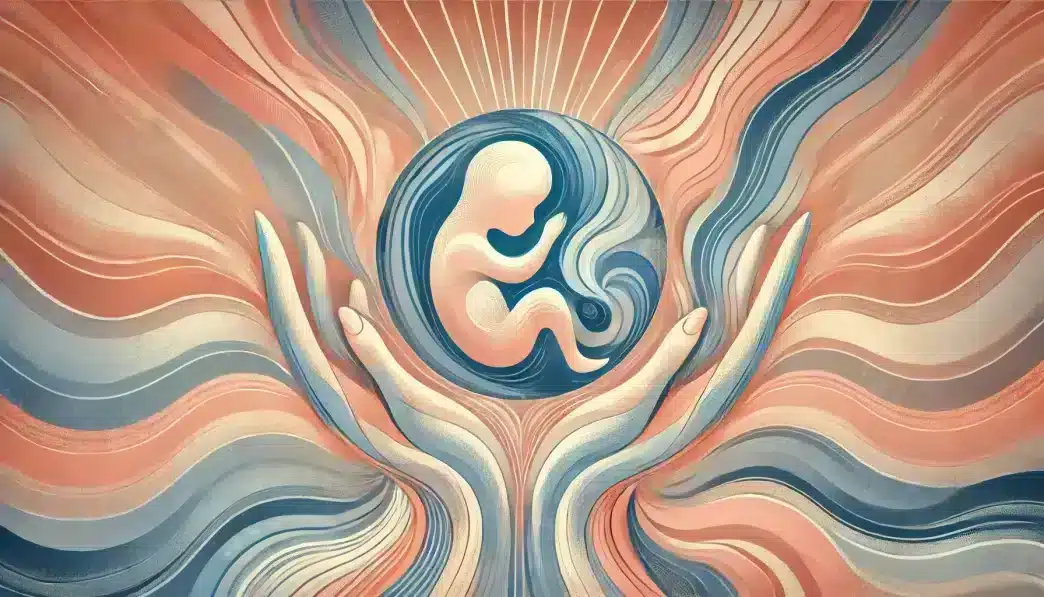What is the Day of the Unborn Child?
The Day of the Unborn Child is observed annually on March 25 to honor and recognize the inherent dignity and right to life of unborn children. Established by Pope John Paul II in 1999, this day aligns with the Feast of the Annunciation, the moment the Angel Gabriel announced to the Virgin Mary that she would conceive and bear Jesus Christ.
However, the day is not without controversy. Critics argue that it often intensifies debates over reproductive rights, particularly the right to access abortion. Advocacy tied to the day is seen by some as dismissive of women’s autonomy and the complex realities they face in making reproductive decisions. This has sparked criticism that the observance is overly politicized, focusing on a narrow interpretation of morality while neglecting broader considerations such as access to healthcare, education, and support for families in need.
History and Origin
The Day of the Unborn Child was first celebrated in El Salvador in 1993 as the Day of the Right to Be Born. The initiative quickly spread to other countries, with nations like Argentina, Chile, and Guatemala adopting similar observances by the late 1990s. In 1999, Pope John Paul II formally recognized the day as an international event tied to the Annunciation, emphasizing the Catholic Church’s commitment to the sanctity of life.
The observance has since expanded to include various countries and communities worldwide. It not only celebrates unborn children but also raises awareness about the challenges facing mothers and families, advocating for compassionate support and alternatives to abortion.
Who Observes the Day?
- Religious Communities: Churches, particularly Catholic communities, hold Masses, prayer vigils, and events dedicated to unborn children.
- Pro-Life Organizations: Advocate for the protection of unborn children through public campaigns, marches, and education.
- Individuals and Families: Participate in prayer, reflection, and acts of solidarity to support the pro-life movement.
- Educational Institutions: Host discussions or lessons focusing on fetal development and ethical considerations surrounding the sanctity of life.
- Cultural Groups: Celebrate through artistic or cultural expressions promoting the value of life.
Slogans and Themes
The Day of the Unborn Child highlights the themes of life, hope, and compassion. Common slogans include “Celebrate Life from the Beginning,” “Every Child Has the Right to Life,” and “Choose Life.”
Themes focus on the dignity of human life from conception, emphasizing the importance of providing care and support for mothers, children, and families in challenging circumstances.
Colors, Symbols, and Patterns
Colors
- White: Represents the purity and innocence of unborn children.
- Blue: Symbolizes the Virgin Mary and her role as the mother of Christ.
- Pink: Reflects love, care, and nurturing for both mother and child.
Symbols
- Baby Feet: A universal pro-life emblem representing the humanity of unborn children.
- Rosary: Used in prayer vigils and as a symbol of spiritual reflection.
- Heartbeats: Represent the early signs of life, symbolizing vitality and hope.
Patterns
- Interlocking Hearts: Depict the bond between mother and child.
- Circular Motifs: Reflect unity and the continuity of life.
- Floral Designs: Represent growth, life, and hope for the future.
How to Observe the Day
- Participate in Prayer Vigils: Join or organize prayer vigils at local churches or community centers to pray for unborn children and expectant mothers.
- Attend Educational Events: Participate in seminars, workshops, or lectures that discuss the value of life, fetal development, and ethical considerations regarding abortion.
- Support Pro-Life Organizations: Volunteer time or donate resources to organizations that advocate for the protection of unborn children and support expectant mothers.
- Wear Symbolic Colors or Pins: Display white, blue, or pink ribbons or pins featuring baby feet to show solidarity and raise awareness.
- Share Information on Social Media: Use platforms to share facts, personal stories, or educational materials about the sanctity of life and the significance of the day.
Most Used Hashtags
- #DayOfTheUnbornChild
- #CelebrateLife
- #ChooseLife
- #ProLifeMovement
- #UnbornRights
Why is the Day of the Unborn Child Important?
The Day of the Unborn Child underscores the sanctity and value of human life at every stage. It raises awareness about the rights of unborn children while encouraging compassion and support for mothers facing difficult decisions. By fostering a culture of life, the day advocates for justice, hope, and respect for all lives, both born and unborn.
Features
March 25: Day of the Unborn Child
Why do you keep falling for the same type?
Read the article Lovemaps: the hidden blueprint of our love.

